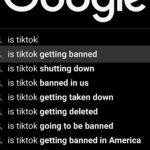I kicked off my New Year’s resolution – same one as last year:
No posting about politics or political-adjacent topics on social media.
It’s not an easy one. For the better part of five years, stirring and engaging in political debate on Facebook and Twitter became a hobby, leading to obsession during the perfect storm of lockdown, COVID debates, and the 2020 election fiasco. I justified it as a social experiment, often using arguments I honed – and insights I gleaned into the human condition – as fodder for this very email.
But it wasn’t worth it. As persuasive and articulate as I like to believe I am, I never once convinced another person to change or rethink their position. Presuming anyone cared what I thought was supercilious at best. Besides, flooding social feeds with heated disagreements only made the experience worse for the majority of Facebook users who are only there to share vacation pictures, laugh at memes, and post their Wordle scores. I was being an asshole.
A year into my political sobriety, I’m happier for it, although some days it’s extremely tempting to leap from the wagon.
We’re more aligned on politics in America than it may seem. On issues and candidates, certainly not. But, on the whole, we share remarkably similar feelings – feelings of furor, despair, and weariness. Take a gander at the chart below from our latest, hot-selling Election Mindset Tracker:
Find me another slate of topics where people across party lines differ by mere single-digit percentage points. You can’t. The universal lack of hope saddens me the most.
There’s plenty of blame to go around, starting with the politicians and media outlets who care more about spurring vitriol and clicks than they do about our well-being. It’s not enough to have us watching and reading divisive content – the more we share it, the more we argue about it, the more it splits friends and family, the more fixated we become.
Ten years ago, I couldn’t tell you how most of my friends voted, what cable news network they watched, or the conspiracy theories they held. And it was nice. Today, we’re expected to declare our unyielding tribal allegiances for all to see, lest people presume we’re aligned with “the others.” And it sucks.
So, let’s stop doing the politicos’ and pundits’ work for them. We’re only digging the hole deeper.
Here’s what we’re seeing:
Consumer confidence started off the year on a positive note. After a year of dramatic ups and downs, our Economic Sentiment Index begins 2024 on an upward swing, hitting its highest point since July and reaching the same level as early January 2023. Hope for lower interest rates ahead has bolstered consumer optimism for making major purchases, which should bode particularly well for the auto industry this year. But confidence in the 6-month U.S. economic outlook was the big gainer – jumping an eye-popping 3.8 points over the past two weeks. Focus on the real economy folks, not politics. It will soothe your soul.
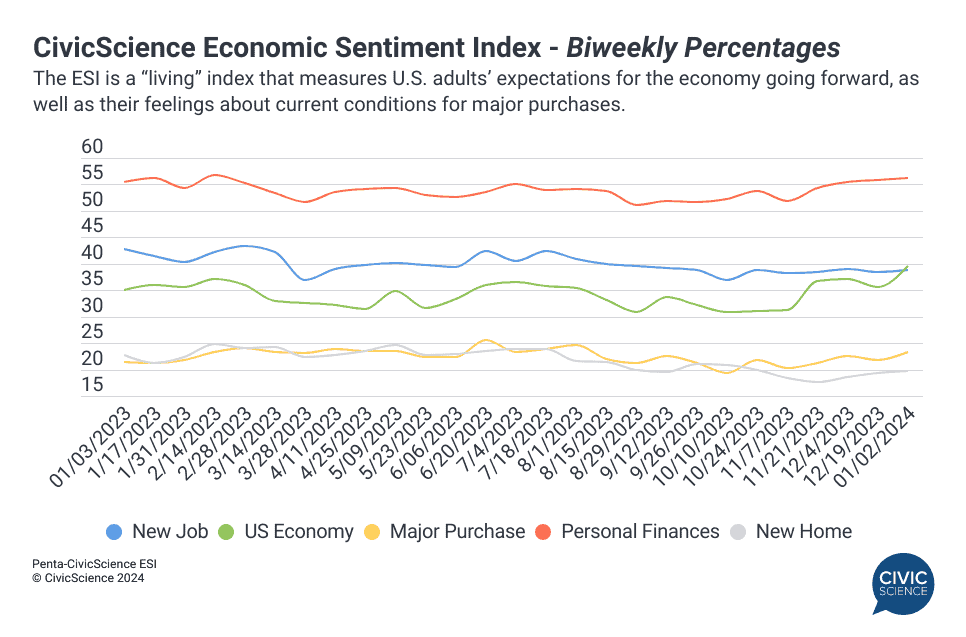
If interest rates fall, expect an even rosier future for car sales. Our 3 Things to Know this week is a perfect summary of everything we covered above, starting with our findings that over 1 in 4 U.S. adults say they’re more likely to buy a car this year if the Fed cuts interest rates. One in ten say they’re “much more likely” to buy a home. In other news, Americans are deeply divided on the Colorado Supreme Court’s decision to disqualify Donald Trump from the GOP primary – with stark differences among age groups. Finally, 40% of Americans claim they stuck with their 2023 New Year’s resolutions (+1 here).
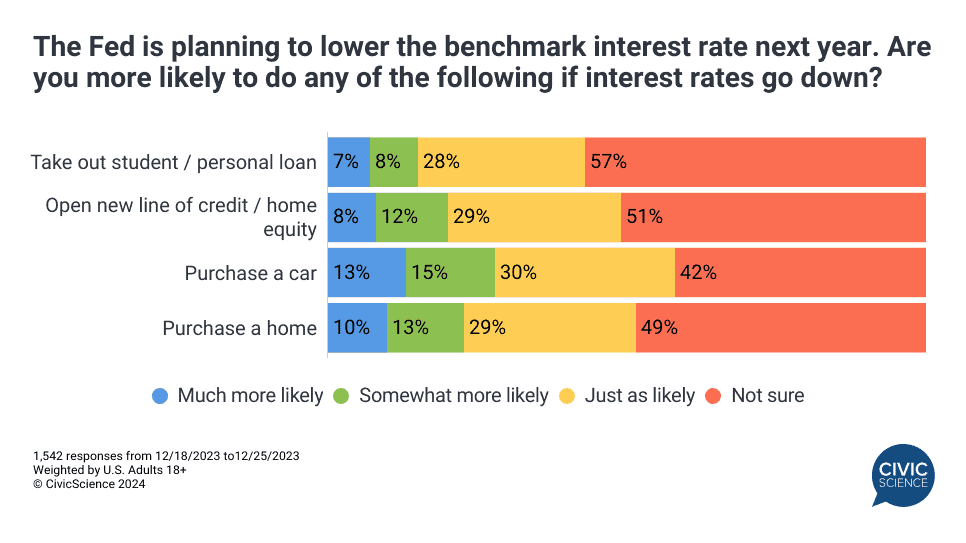
Our collective emotional well-being is slowly approaching pre-pandemic levels, so long as the election doesn’t eff things up. Our monthly Well-Being Index climbed for the second consecutive month in December, reaching levels not seen beyond a brief moment last June. Overall, Americans’ emotions subsided across the board – good and bad – with stress and fear falling the most. Most interesting to me was the long-term view.
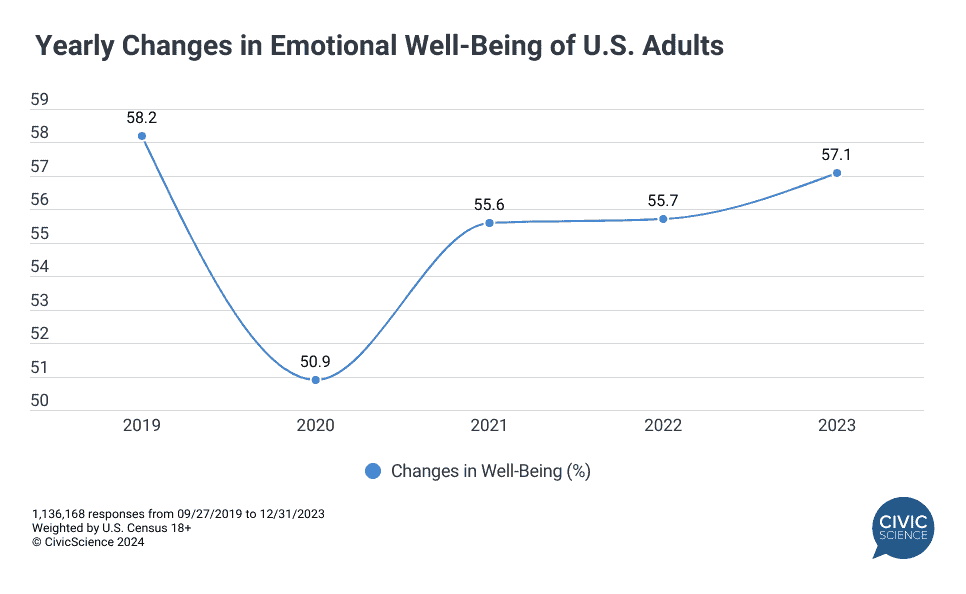
Older Americans will be a lot more judicious in their spending in 2024. Forty-two percent of U.S. adults aged 55 or older expect to have less disposable income this year, compared to 38% of the U.S. Gen Pop. I call that practicality and experience, rather than pessimism. But it doesn’t mean they’ll cut back across the board. Adults 55+ are far more likely than other age groups to say they expect to spend MORE this year on things like travel, home improvement, and health & wellness. Their cutbacks will come in categories like apparel and financial products. Given that older Gen Xers and Boomers are sitting on the biggest piles of wealth in our country, this stuff matters.
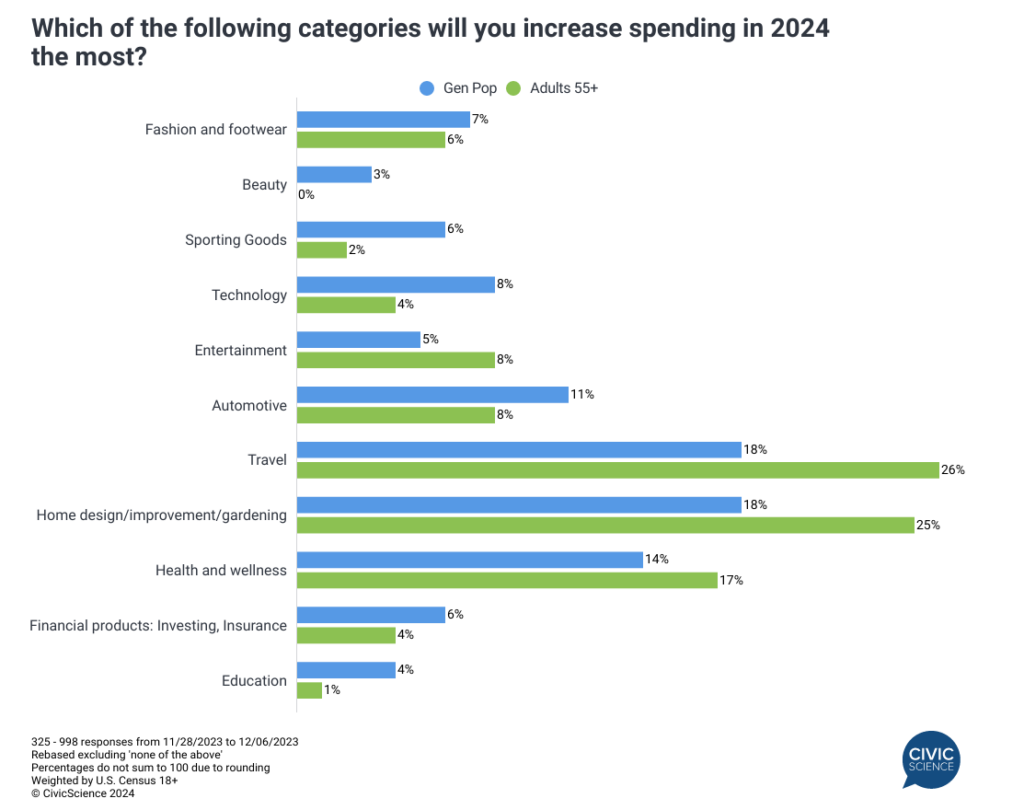
It could be a rocky year for the alcohol industry. Already freaking out (they should be) about the potential impact of Ozempic and GLP-1s on boozing, now beer, wine, and spirits companies need to fret over the sobering Dry January data this year. Nearly half (49%) of drinking-age U.S. adults say they’re at least somewhat likely to teetotal this month, up from 42% this time last year. It jumps to over 70% among people in their 20s – where non-alcoholic beverage companies have a huge opportunity to gain. All I know is these people mustn’t be going to the Consumer Electronics Show, where I’ll be. On that note, hit me up if you’ll be in Vegas next week. We can observe non-Dry January together.
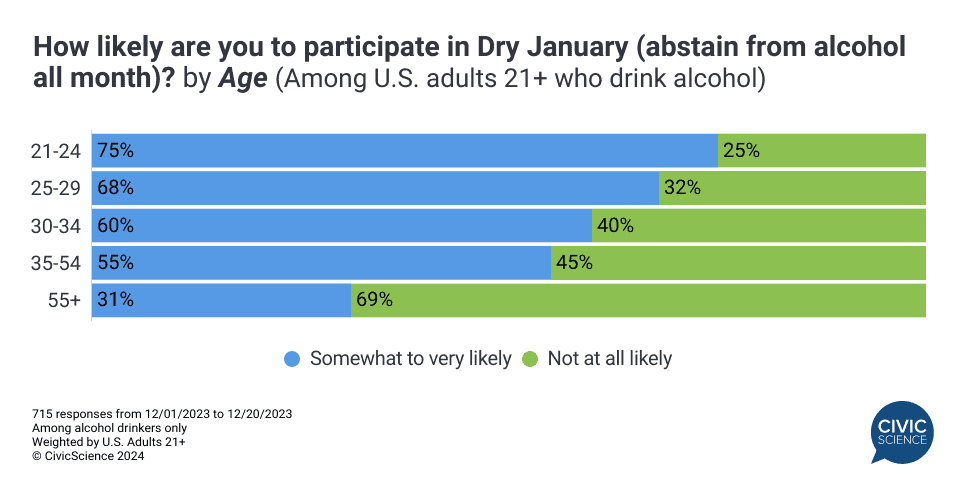
More awesomeness from the InsightStore™ this week:
- Breakfast trends keep evolving post-pandemic, but people still love bacon;
- These are the big differences between people who intend to use TurboTax and H&R Block for their annual tax prep;
- Plus, the best ways to tell a Jimmy John’s customer from a Subway customer;
- And two studies from last week about New Year’s Eve party plans and more trends in New Year’s resolutions.
The most popular questions this week:
Have you ever been mistaken for a celebrity or other public figure?
Do you tend to run towards or run away from your problems?
How likely or unlikely are you to ask your houseguests to not wear shoes inside of your home?
Do you find yourself more at peace indoors or outdoors?
Are road trips better spent during the daytime or nighttime?
Answer Key: Yes, Ben Affleck, and it’s annoying; Right at them; Never; Definitely outdoors; Daytime for sure.
Hoping you’re well. And Happy New Year!
JD
P.S. Seriously, let me know if you’ll be at CES. It would be great to see you in real life.
Want to see weekly insights from the What We’re Seeing through the lens of your customers? Learn how here.
Was this email forwarded to you? Sign up here. If you are new to this list, check out our Top Ten to get caught up.



